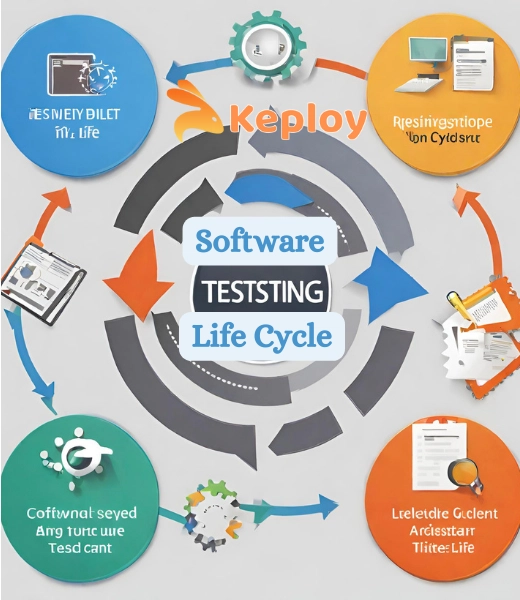KPMG Survey Highlights Business Leaders’ Ambitions for GenAI
As we head into 2025, AI’s transformative potential is widely acknowledged. Many leaders anticipate fundamental changes to their business models in the near term. According to a recent survey from KPMG, most leaders (67%) expect AI to fundamentally transform their businesses within the next two years. KPMG, one of the “Big Four” professional services firms known for its audit, assurance, tax, and consulting services, released the findings of its AI Quarterly Pulse Survey. The report provides insights into how organizations are converting AI ambition into real-world results. In an environment marked by challenging economic conditions, heightened investor expectations, and the relentless drive for operational efficiency, businesses are intensifying their commitment to GenAI initiatives. Many organizations are looking to use agentic AI and other autonomous tools to boost operational efficiency. Over half (51%) of the respondents are exploring the use of AI agents, however, only 12% have actually deployed AI agents currently. Agentic AI, with its capacity to autonomously initiate actions, adapt to new situations, and make context-based decisions, is one of the keenly anticipated AI trends for 2025. Based on the KPMG survey, business leaders are planning to harness agentic AI for tasks for streamlining administrative functions (60%), enhancing customer service (54%), and developing new business content (53%). “Our latest pulse survey confirms what we’re seeing with clients: organizations are doubling down on AI investments,” said Steve Chase, Vice Chair of AI & Digital Innovation. “The data also shows growing momentum around AI agents, with over half of organizations exploring their use. Leaders are putting real dollars behind agents, but with mounting pressure to demonstrate ROI, getting the value story right is critical.” While business leaders have ambitious plans for GenAI, significant hurdles remain including data quality issues and employee adoption. GenAI relies heavily on the quality of data it is trained on, and several reports have shown that this remains a key bottleneck for GenAI's success. Poor data quality, such as biases or inconsistencies in data, can lead to inaccurate and unreliable outputs. Reports also suggest that upskilling the workforce and fostering synergy between AI and humans is vital to driving maximum value from AI initiatives. However, employee adoption remains a persistent challenge. This is partly due to employees lacking the necessary skills and understanding to effectively integrate AI into their workflows. The KPMG survey reveals that a quarter of employees currently using AI embedded into existing workflows survey. This should help increase the GenAI adoption rate. "Enterprise technology providers will introduce agentic AI capabilities throughout 2025, enabling organizations to move from experimentation and piloting to broad-scale deployment and integration into existing workstreams," said Todd Lohr, Head of Ecosystems, U.S. Advisory. "The key will be to maintain effective oversight to enhance trust, facilitate employee adoption, and create new opportunities for human-AI collaboration while scaling efficiently." Despite employee adoption challenges, organizations are investing heavily in new hires, rather than upskilling existing workforce. This top-down GenAI implementation suggests that GenAI is being used more by senior executives than middle or entry-level employees. This deviation from typical adoption patterns raises concerns about potential governance gaps. The survey also highlights another lingering concern about GenAI: how to measure success. The ROI expectations are high but without a reliable method for measuring success, business might just be shooting in the dark. More than 80% are planning to include GenAI as part of their organization’s formal performance development track. However, do organizations have the right metrics to measure ROI? According to Chase, the dynamic nature of AI demands new ways to measure value, and this may include the introduction of new metrics that are aligned with the overall business strategy. Chase emphasizes that the ROI metrics should take into consideration the cost of not investing. For the first time since Q1 2024, productivity has become the leading ROI metric, with 79% citing it as the top priority. Profitability follows closely behind, experiencing the largest increase of any metric from Q1 to Q4, rising from 35% to 73%. Looking ahead to 2025, organizations must bridge the gap between AI potential and practical application by upskilling current employees and addressing data quality and governance issues. Embracing the collaborative strengths of human and AI capabilities will be an important factor in realizing the transformative power of GenAI, ensuring sustained growth and innovation.

As we head into 2025, AI’s transformative potential is widely acknowledged. Many leaders anticipate fundamental changes to their business models in the near term. According to a recent survey from KPMG, most leaders (67%) expect AI to fundamentally transform their businesses within the next two years.
KPMG, one of the “Big Four” professional services firms known for its audit, assurance, tax, and consulting services, released the findings of its AI Quarterly Pulse Survey. The report provides insights into how organizations are converting AI ambition into real-world results.
 In an environment marked by challenging economic conditions, heightened investor expectations, and the relentless drive for operational efficiency, businesses are intensifying their commitment to GenAI initiatives. Many organizations are looking to use agentic AI and other autonomous tools to boost operational efficiency.
In an environment marked by challenging economic conditions, heightened investor expectations, and the relentless drive for operational efficiency, businesses are intensifying their commitment to GenAI initiatives. Many organizations are looking to use agentic AI and other autonomous tools to boost operational efficiency.
Over half (51%) of the respondents are exploring the use of AI agents, however, only 12% have actually deployed AI agents currently. Agentic AI, with its capacity to autonomously initiate actions, adapt to new situations, and make context-based decisions, is one of the keenly anticipated AI trends for 2025.
Based on the KPMG survey, business leaders are planning to harness agentic AI for tasks for streamlining administrative functions (60%), enhancing customer service (54%), and developing new business content (53%).
“Our latest pulse survey confirms what we’re seeing with clients: organizations are doubling down on AI investments,” said Steve Chase, Vice Chair of AI & Digital Innovation. “The data also shows growing momentum around AI agents, with over half of organizations exploring their use. Leaders are putting real dollars behind agents, but with mounting pressure to demonstrate ROI, getting the value story right is critical.”
While business leaders have ambitious plans for GenAI, significant hurdles remain including data quality issues and employee adoption. GenAI relies heavily on the quality of data it is trained on, and several reports have shown that this remains a key bottleneck for GenAI's success. Poor data quality, such as biases or inconsistencies in data, can lead to inaccurate and unreliable outputs.
 Reports also suggest that upskilling the workforce and fostering synergy between AI and humans is vital to driving maximum value from AI initiatives. However, employee adoption remains a persistent challenge. This is partly due to employees lacking the necessary skills and understanding to effectively integrate AI into their workflows. The KPMG survey reveals that a quarter of employees currently using AI embedded into existing workflows survey. This should help increase the GenAI adoption rate.
Reports also suggest that upskilling the workforce and fostering synergy between AI and humans is vital to driving maximum value from AI initiatives. However, employee adoption remains a persistent challenge. This is partly due to employees lacking the necessary skills and understanding to effectively integrate AI into their workflows. The KPMG survey reveals that a quarter of employees currently using AI embedded into existing workflows survey. This should help increase the GenAI adoption rate.
"Enterprise technology providers will introduce agentic AI capabilities throughout 2025, enabling organizations to move from experimentation and piloting to broad-scale deployment and integration into existing workstreams," said Todd Lohr, Head of Ecosystems, U.S. Advisory. "The key will be to maintain effective oversight to enhance trust, facilitate employee adoption, and create new opportunities for human-AI collaboration while scaling efficiently."
Despite employee adoption challenges, organizations are investing heavily in new hires, rather than upskilling existing workforce. This top-down GenAI implementation suggests that GenAI is being used more by senior executives than middle or entry-level employees. This deviation from typical adoption patterns raises concerns about potential governance gaps.
The survey also highlights another lingering concern about GenAI: how to measure success. The ROI expectations are high but without a reliable method for measuring success, business might just be shooting in the dark.
More than 80% are planning to include GenAI as part of their organization’s formal performance development track. However, do organizations have the right metrics to measure ROI?
 According to Chase, the dynamic nature of AI demands new ways to measure value, and this may include the introduction of new metrics that are aligned with the overall business strategy. Chase emphasizes that the ROI metrics should take into consideration the cost of not investing.
According to Chase, the dynamic nature of AI demands new ways to measure value, and this may include the introduction of new metrics that are aligned with the overall business strategy. Chase emphasizes that the ROI metrics should take into consideration the cost of not investing.
For the first time since Q1 2024, productivity has become the leading ROI metric, with 79% citing it as the top priority. Profitability follows closely behind, experiencing the largest increase of any metric from Q1 to Q4, rising from 35% to 73%.
Looking ahead to 2025, organizations must bridge the gap between AI potential and practical application by upskilling current employees and addressing data quality and governance issues. Embracing the collaborative strengths of human and AI capabilities will be an important factor in realizing the transformative power of GenAI, ensuring sustained growth and innovation.
What's Your Reaction?























/cdn.vox-cdn.com/uploads/chorus_asset/file/23952435/HT025_tikTok_0006.jpg)



